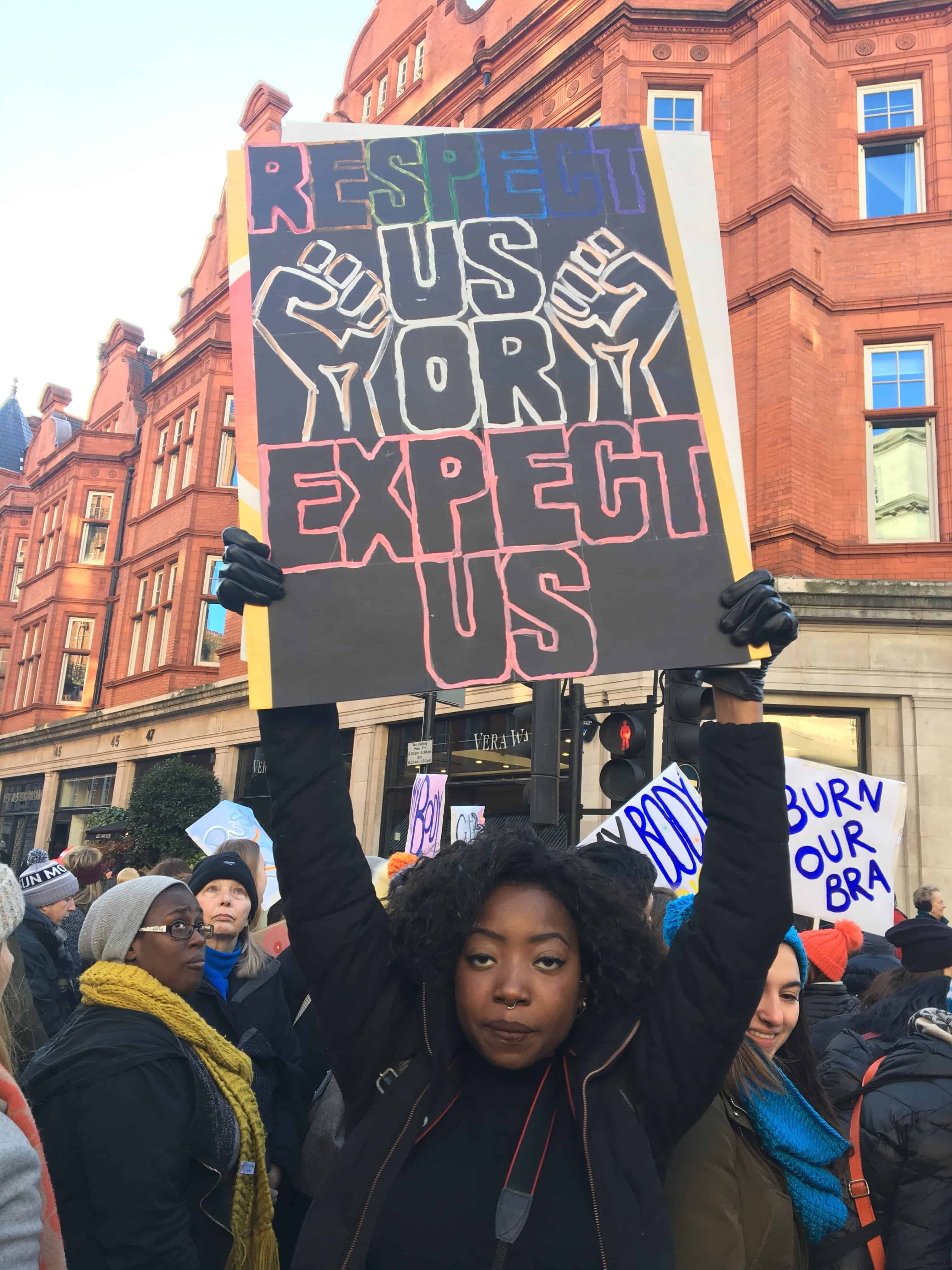The Women’s March in London kicked off global protests early Saturday morning, as dozens of similar demonstrations took place in Ireland, the Netherlands, Italy, Kenya, Mexico, Canada, Brazil, and Australia.On a cold but sunny day in London, thousands congregated in the center of town, before marching to Trafalgar Square in Westminster. The mood was upbeat, with many people bringing their children along. One couple had brought their two young daughters with them to “teach respect for all people.” One of the little girls seemed less than impressed by such a declaration however, insisting that she was bored and wanted to go home.Early on, London march organizers announced that there were over 80,000 people in attendance, with people spilling into side roads and climbing railings. Later that figure was revised to 100,000. The mood was inclusive, and backed by many political and activist groups. Sarah, who wasn’t affiliated to any particular group, had come along to march against “all the isms – Trumpism, sexism and racism.”
The mood was inclusive, and backed by many political and activist groups. Sarah, who wasn’t affiliated to any particular group, had come along to march against “all the isms – Trumpism, sexism and racism.” Organizers in Kenya were even more blunt: “The recent elections in the United States have shown how real the threat is to our collective rights and liberties. We march together for the protection of our rights, our safety, our families, our health and the health of our planet.”
Organizers in Kenya were even more blunt: “The recent elections in the United States have shown how real the threat is to our collective rights and liberties. We march together for the protection of our rights, our safety, our families, our health and the health of our planet.”
Participants around the world, supporting the main Women’s March in Washington, D.C., where organizers expect as many as 500,000 people, say they are marching shoulder to shoulder with American women, as well as to stand up for their own rights.
Advertisement
The Mayor of London, Sadiq Khan, was present. Khan tweeted his support for the march:
On Facebook, the London organizers laid out the event’s international mission: “We will come together in the spirit of democracy, honouring the champions of human rights who have gone before us … The politics of fear and division have no place in 2017.”The banners and placards were colorful and often humorous. Many protested at Donald Trump’s previous statements about women. Michelle Madsen and Kelly Davy brought an inflatable doll dressed up as Trump “to objectify him as he has women.”Mary Duggan was festooned with banners and placards, saying she had been marching for women for many years:

Advertisement

Marchers in Italy converged on Rome, and many placed emphasis on migrant rights as well as the rights of women. In the past year Italy has been one of the centers of the European migrant crisis, with 171,000 people arriving on its shores in 2016.
Climate change was also on the agenda in Rome:
In Australia, demonstrators gathered in Sydney, where Trump was not the only topic on the agenda. “It’s not all about him,” journalist Tracey Spicer told the crowd. “It’s about the systemic inequalities highlighted by his rise to power. I like to think about these actions – these marches – as anti-hatred, anti-bigotry and anti-misogyny.”The march was also addressed by anti-Islamophobia campaigner Mariam Veiszadeh, who told them: “We must acknowledge today that while is hard to be a woman, it is far harder to be a woman of colour.”